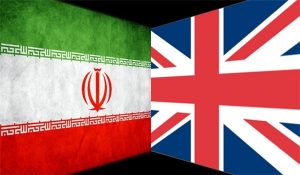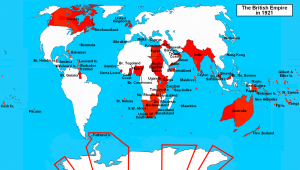The British Labour Party Uses Humanitarian Assistance as a Means of International Diplomacy In the Twenty-First Century
Consequently, the imperial sentiments of the Conservatives had become integrated with Labour’s colonial doctrine of trusteeship. The Labour Government and in particular Bevin in 1946 expressed the view strongly that the ending of the British Empire could lead to a rapid falling of the standard of life in Britain and her colonies, and thus he said he was not ready to let the British Empire simply disappear. As a result of the way that the decolonisation process was handled and channeled into the establishment of the Modern Commonwealth, in which the Colombo Plan was a major element, Britain won the support from the ex-colonies. Thus the influence of Communism was blunted and the other Western countries were deterred from march World War Two, until now, that, is the beginning of the twenty-first century it could be said that giving of aid has become part of international diplomacy, an approach begun by the British Labour Party, as has been discussed in this article. Giving of aid policy of the British Labour Party is uncontroversial, as it contains assistance to the developing countries and at the same time the economic interests of Britain is defended. Giving of aid policy of the British Labour Party maintains Britain’s world role and influence in the beginning of the twenty-first century. This is traced back to the strategy launched in practice in the Colombo Plan of 1950, which we saw in this article. In the twenty-first century, this represents the major political achievement of the British Labour political elite, which helped guarantee its own position.
We shall briefly examine the Iraqi crisis of 2003-2005, respecting the British Labour Party and the use of humanitarian aids as a means of international diplomacy in the twenty-first century.
As a result of size, population, but essentially her richness in natural resources, the United States, due to Britain’s economic crisis after the Second World War, emerged stronger than Britain. In fact, power fell into America’s hands rather than having to be wrested from Britain. Moreover, given its own history it had little sympathy for Britain’s imperial position and role. For their part, the British political elite, who had worked together in the War Cabinet during the War, had very little disagreement about the need to maintain British power and interests in the post-war world.
To that end, both Labour and Conservative Atlee, Bevin and Churchill, took the view that an alliance with the United States was essential. This was prompted in particular by their fear of the threat posed by the communist expansionist policy of the Soviet Union to British interests, not least in the Commonwealth. Having decided to proceed with the decolonisation process both the Labour government of 1945-51 and the Conservative governments of 1951-55m 1955-57 and 1957-63, pursued the policy of involving the Americans in the defence of Western Europe and Britain against the Soviet threat. Taking into account too, after the Second World War the concept of a ‘common language and heritage’ or ‘special relationship’, which was first spoken by Churchill in a speech in Fulton Missouri, when he visited the USA in March 1946 on a private visit.



